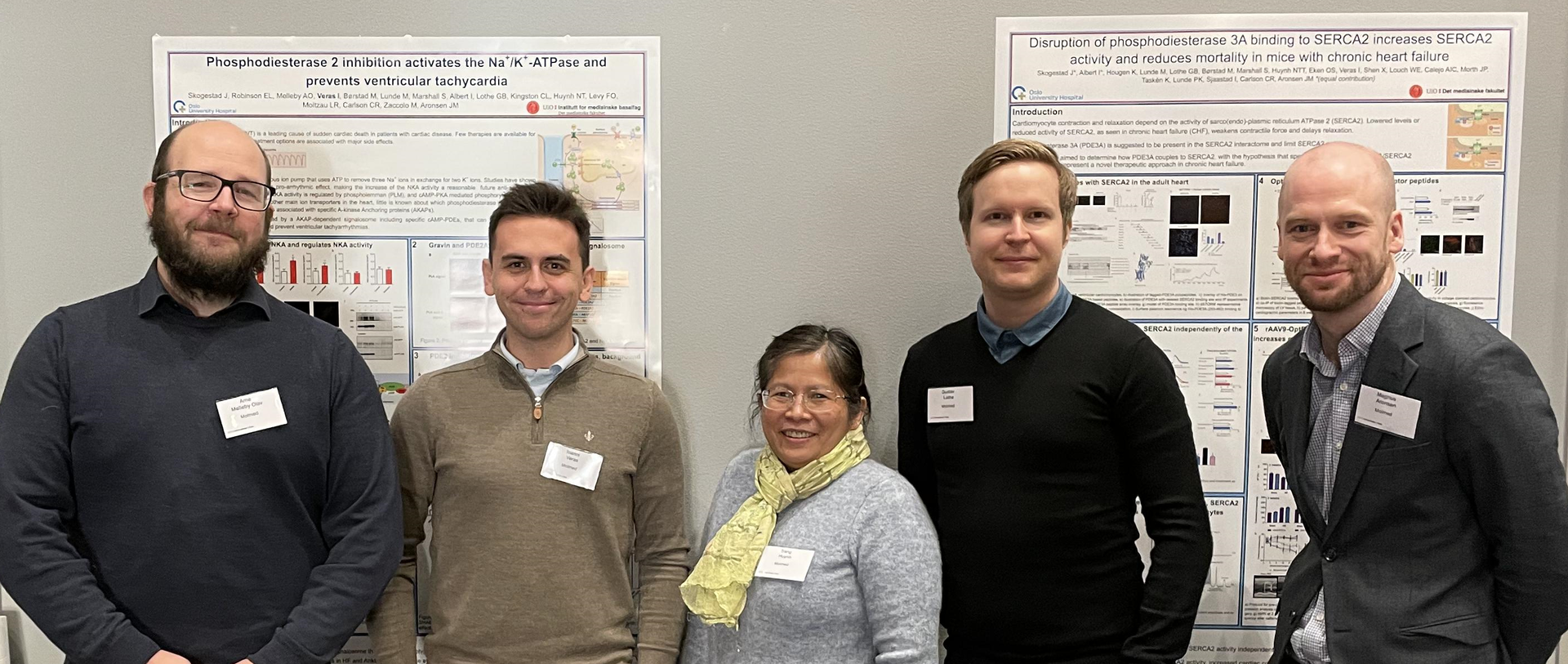The figure shows the main research focus of the research group, and the strategy for developing future therapies for cardiac disease. The left figure shows how ion transporters and channels in concert is the physiological basis for the heart beat, and imbalance in these contributes to cardiac arrhythmias. The group aims to develop activators and the SR Ca2+ ATPase 2 (SERCA2) and the Na+/K+-ATPase (NKA) as future therapy for cardiac arrhythmias. The group further aims to develop agents that are able to switch on or off specific gene programs as future treatment for cardiac disease by controlling specific transcription factors and/or epigenetic modulators.

From left: Arne Olav Melleby, Ioanni Veras, Ngoc-Trang Thi Huynh, Gustav Lothe, Magnus Aronsen. Katrine Bjerkebæk not present.
Interested in the medical research curriculum? Take a look at our student project!
